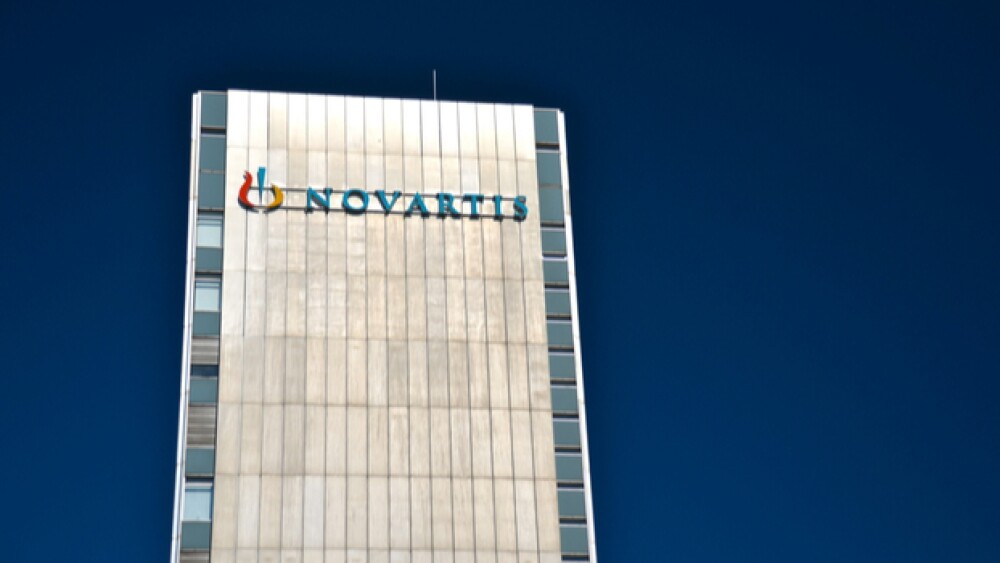Novartis announced the CANOPY-1 Phase III trial of canakinumab failed to meet its primary endpoints when combined with Merck’s checkpoint inhibitor Keytruda (pembrolizumab).
lucarista/Shutterstock
Novartis announced the CANOPY-1 Phase III trial of canakinumab failed to meet its primary endpoints when combined with Merck’s checkpoint inhibitor Keytruda (pembrolizumab) plus platinum-based doublet chemotherapy in non-small cell lung cancer (NSCLC).
Specifically, the trial did not meet the primary endpoints of overall survival (OS) and progression-free survival (PFS) in patients receiving the combination therapy compared to the placebo cohort that received Keytruda plus platinum-based doublet chemotherapy in patients with previously untreated locally advanced or metastatic NSCLC.
The study failed to meet statistical significance for those endpoints. Still, the company did say the study showed potentially clinically meaningful improvements in PFS and OS in pre-specified subgroups based on the baseline inflammatory biomarker, he-CRP, and other biomarker-defined subgroups. They believe this supports the continued study of the drug in lung cancer.
“CANOPY-1 provides critical insights into the treatment of this devastating disease, and we will continue to analyze the data and conclusions, as well as their potential clinical implications,” said John Tsai, M.D., head of Global Drug Development and chief medical officer, Novartis. “While this trial did not confirm the benefit for all patients we hoped for, we are energized by the overall CANOPY-1 findings as they support our commitment to continue studying canakinumab in lung cancer. We share our gratitude and thanks to the CANOPY-1 study patients and clinical investigators for their partnership.”
Canakinumab is a human monoclonal antibody that targets human interleukin-1beta (IL-1B) and neutralizes its activity. Data suggests this can inhibit Pro-Tumor Inflammation (PTI) from improving anti-tumor immune response and decreasing tumor cell proliferation, survival, invasiveness, and impairing angiogenesis.
In March, the Phase III CANOPY-2 trial also failed to hit the primary endpoint of OS in second- or third-line treatment for patients whose cancer had progressed after previous chemotherapy or immunotherapy. This CANOPY-1 study seems to have similar responses. However, Novartis appears to believe it may still help treat cancer, particularly in earlier disease stages, such as when patients received it post-surgery (adjuvant) or neo-adjuvant (before surgery) in NSCLC patients.
The Phase II CANOPY-N trial is evaluating canakinumab in the neoadjuvant setting. It tests the drug alone and in combination with Keytruda in patients with resectable NSCLC before their surgery. CANOPY-A is a Phase III trial evaluating canakinumab in the adjuvant setting after surgical resection and cisplatin-based chemotherapy.
The drug was initially developed for atherosclerotic disease, but in 2017, the company found it came with a decreased risk of dying from lung cancer. Novartis and the industry are working to determine if drugs that affect the PTI pathway in NSCLC can be helpful. Novartis is also studying gevokizumab, an antibody against IL-1B, in a Phase I trial.
Late last week, Novartis inked an initial deal with Pfizer and BioNTech to expand its fill-and-finish activities for the companies’ COVID-19 vaccine. Novartis will leverage its sterile manufacturing plants at the Novartis Technical Operations site in Ljubljana, Slovenia. It expects to fill at least 24 million doses in 2022.





